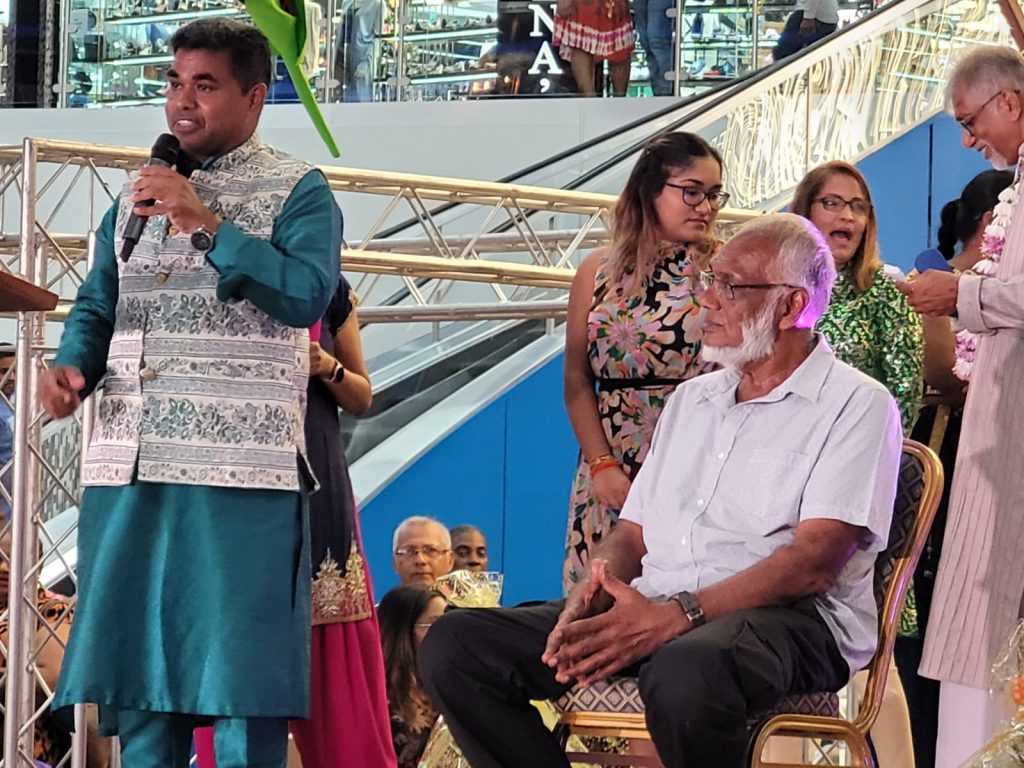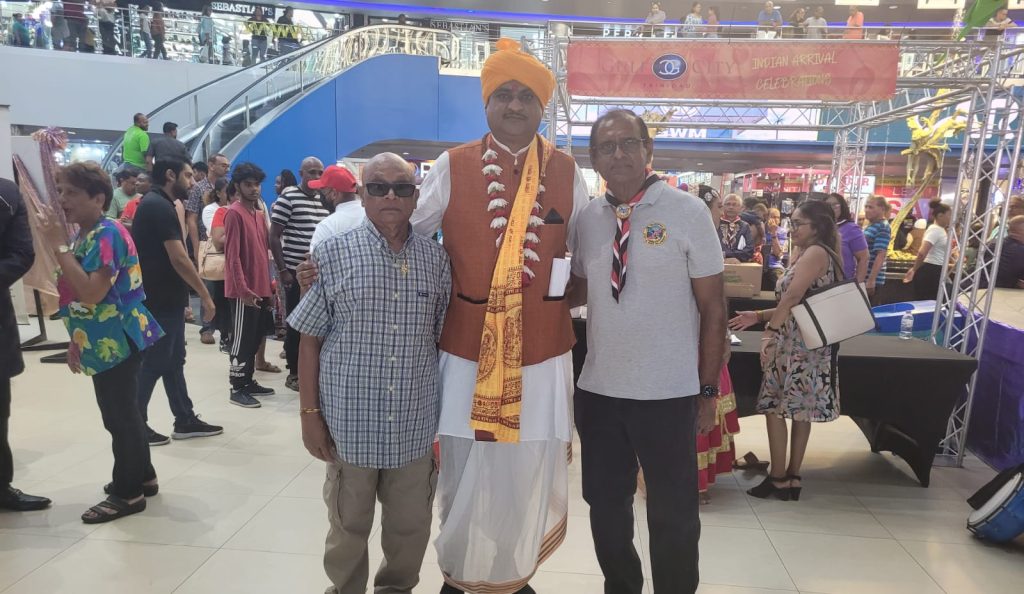Pandit Satyanand Mahabir Dube appealed to his audience to ‘give your children Indian names” and added that ‘gone are the days when we had to change our names to get an education and a job.”
Panditji was the feature speaker at the 10th annual Indian Arrival Day celebration at the Gulf City Mall in La Romain. The program, sponsored by The Original Indian Arrival Day Committed, is headed by Anand Rameshwarsingh, a businessman.
Pandit Satyanand also called on his large audience to learn their language and emphasized that when a ‘people lose their language, their culture is also lost.’ He said that in the early years prior to independence there where clubs where the Hindi and Bhojpuri were spoken and that Hindi was used by the early Presbyterian missionaries to convert Indians to Christianity.

Panditji wondered if in Trinidad we have taken a decision to become modern and western at the expense of our Indian identity. He cited that when he signed up to do Hindi as a course, his father remarked ‘what you going to do with Hindi…that would put you anywhere?”
“We have to stand up and start to unite to regain what we have lost,” urged Pandit Satyanand and pointed out that ‘every leader wants to be his own raja, boss and maharaja…we need to stand together as Indians.” Panditji lamented the discrimination of the government in disbursing funds for Phagwa and other Indian festivals. He said that his mandir applied for funds for Phagwa from the Ministry of Culture and to date he got no response.
In addition to the cultural program that featured dances, tassa by Eagle Boys’ Tassa Group, biraha by Naresh Teemal and vocals by Satnarine Ragoo and Indar Kanhai, a major highlight of the evening was the honoring of citizens for their distinguished services to the community. The five receiving awards were Pandit Beesram Sewdat, a well-known Hindu worker, Ramdeo Tahal Samlal for his contribution to farming, religious work, sports and the scout movement, Krishna Maharaj, a retired police officer for his contribution to Indian orchestration, Jasso Maharaj for pioneering a small business and raising her family and Ravi Bharati, Spiritual Head of the Param Dhaama Ashrama for his pioneering work among the youths in Penal district.
The cultural evening which began with Vedic chanting by devotees of the Param Dhaama Ashrama was received by a packed audience which was also treated to hot tasty doubles and chai, all free of charges.
The National Archives had a display of records of indentureship including the certificate of indentureship and pictures of the early indentures. There was also a booth highlighting some of the early utensils that Indians used in the kitchen including the bilna, chowki, dhal gotni, chula etc.
Present in the audience were the Ramracha brothers of Florida who are originally from San Fernando. Both brothers felt moved by the cultural performances and expressed satisfaction with the speech delivered by Pandit Satyanand.
The Original Indian Arrival Day Committee got its name from the Indian Arrival Day Committee that pioneered the celebration of the historic day in 1979 with a grand program at the Lakshmi Girls’ College. Led by Ramdath Jagessar (1947-1923) the celebration then went to villages like Endeavour and Bamboo No 1, Valsayn. Later the Hindu Seva Sangh took the celebration to the many parts of the country until Trevor Sudama moved a motion in Parliament that led to the day -May 30- being declared a public holiday in 1994.
Khalique Khan is a survivor of this original Indian Arrival Day Committee and it was he who initiated the first celebration at Gulf City Mall ten years ago. Khalique Khan was recognized on stage for his pioneering work and contributed the two door prizes.
(The following are the members of the early Indian Arrival Day Committee: Ramdath Jagessar, Azamudeen ‘Danny’ Jang, Rajiv Siewnarine, Khalique Khan, Rajni Ramlakhan, Ashik Gobin and Anand Rameshwarsingh.)
